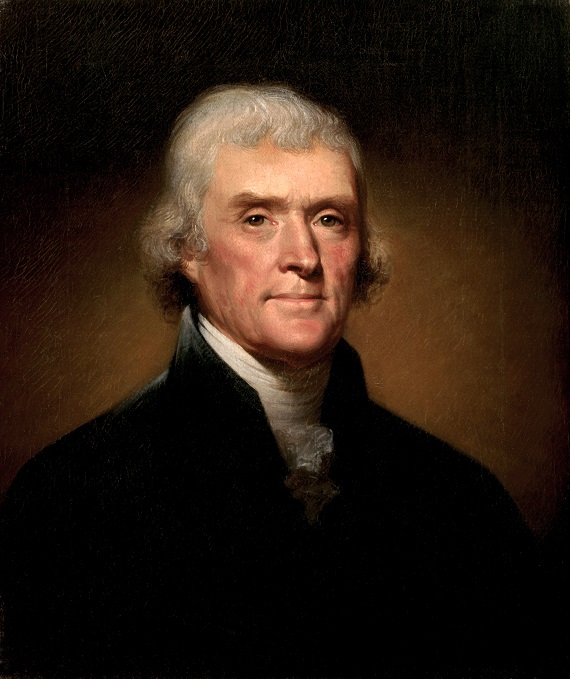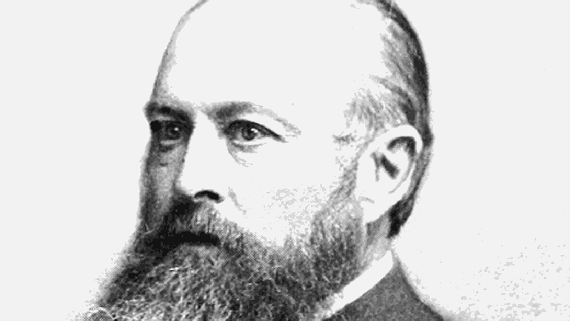A Review of The Long Affair: Thomas Jefferson and the French Revolution, 1785-1800, by Conor Cruise O’Brien, Chicago: University of Chicago Press, 1996, 367 pages.
What a marathon of Jefferson-bashing we have had in the last few years. This book by the “global statesman” O’Brien follows several other critical biographies, all of which have been highlighted in the fashionable reviews. More than usually offensive to Jefferson admirers was a collection (The View from Monticello) by University of Virginia professors trashing their founder (not surprising since they are all carpetbaggers anyway); a slashing attack in National Review; and, worst of all, Ken Burns’s latest television “documentary.”
None of this literature tells us anything about Jefferson. There is no scholarship—that is, research and discovery—involved. We have here, rather, a case study in intellectual sociology: that is, an exhibit by fashionable intellectuals determining what is and is not acceptable to their version of the American regime. What they tell us is that Jefferson is out now.
Friends, you must have either Jefferson or Hamilton. All the fundamental conflicts in our history were adumbrated during the first decade of the General Government in the contest symbolized by these two men. Hamilton lost in the short run, but triumphed in the long run. He would find much that is agreeable in the present American regime—a plutocratic kritarchy which we persist, by long habit of self-deception, in calling a democracy. But Thomas Jefferson would not be at all happy with what has happened to this country; he might even suggest that the time had come for a little revolution. The host of petty intellectuals and pundits, elitists, and would-be elitists—tame scribblers of the American Empire—sense this, and so Jefferson must be dealt with appropriately. The Establishment is frightened by the rumblings they hear from the Great Beast (that is, we the American people). They are shocked to realize that Jefferson honestly did believe in the people; that he believed the soundest basis for government to be popular consent and a severely limited government.
Hamilton, on the other hand, believed in rule by “the [self-appointed] best” and in “energetic government” operating in the interest of private profit. For the better part of a century we had protective tariffs which burdened the great mass of the American people, agriculturalists, and consumers, while profiting large capital. Now that it is in the interest of large capital to ship American workers’ jobs to the Third World, we have every petty pundit singing the praises of “free trade.” Just what Alexander ordered.
Hamilton, it is true, was rather indifferent to the do-gooder side of the federal leviathan. Yet do-gooderism was axiomatic for the New Englanders who made up the largest base of his support: people whose instinct is immediately to translate every moral prompting into governmental coercion. This is why you and I now have to add the cost of airbags to our car, by federal decree, whether we want them or not.
O’Brien’s brief against Jefferson is twofold. First, he favored the French Revolution, even its excesses, which show him to be an irresponsible bloody-minded parlor revolutionary. Second, Jefferson was not a racial egalitarian and is therefore an unacceptable symbol for modern America.
O’Brien, as a number of reviewers have pointed out, lacks the most fundamental requirement of historianship—that is, the careful use of documents and understanding of context. He makes no distinction between Jefferson’s friendship for the French people—his always cautious hopes that they might achieve popular government—and support for the Terror. On this subject (as on most others), there is much better treatment from Albert Jay Nock’s old biography, Jefferson. As for Jefferson not being a racial egalitarian—well, neither were Lincoln, Teddy Roosevelt, and Woodrow Wilson or, for that matter, Harry Truman and Ike Eisenhower. So what?
What we have here is elitist hysteria, an old and familiar phenomenon. During the election of 1800, the president of Yale, Timothy Dwight, stumped New England trying, with the aid of most of the New England clerisy, to convince the people that Jefferson was a representative of the Illuminati. John Adams cowered in his fortified house in fear of The Mob, while Jefferson lived at ease among his 200 slaves. The Federalists persuaded themselves that the guillotines were about to be set up if that horrible decadent Southerner were elected—ousting them from their power and prestige. Today, we have merely the latest version of the thing. Petty elitists, unsure of their unmerited positions and fearful of the people, conjure up a dark spectacle of terror. How unthinkable that we should have those yahoos out there calling the shots, instead of their betters.
The trouble is, Jefferson was always a liberal but never a Liberal. Liberals (for lack of a belter term) for years perpetuated an elaborate hoax making Jefferson one of them—which he never was or could have been. Now that it is obvious that he really wasn’t, an elaborate ex-communication—equally a hoax— from the American canon seems to them necessary. It would be comedic if it were not such a malicious perversion of the historical truth. The burden of O’Brien’s teaching is that Jefferson does not belong in, and must be ejected from, the American civil religion. But does America have a civil religion? Ought we to have one? Who says so? And if we do, do we need some damned foreigner to tell us what is to be left in, and what out, of it? What Jefferson most fundamentally signifies is that we do not need secular priests governing our civic life; we need merely to trust in a limited, popular government while keeping a wary eye on the self-appointed clerisy.
The pundits are right. Jefferson does not offer aid and comfort to the present regime. And let us thank the Creator who endowed us with our inalienable rights for that. We still have in Jefferson a powerful symbol for liberty and the consent of the people that no number of pettifogging scribblers can suppress.







